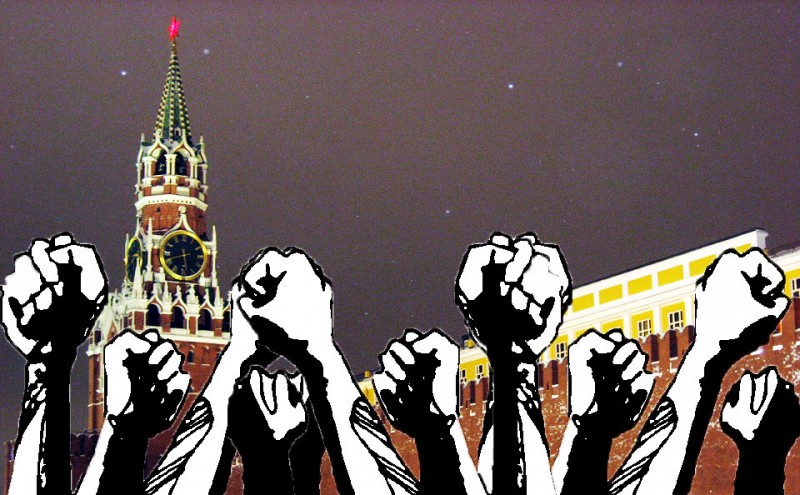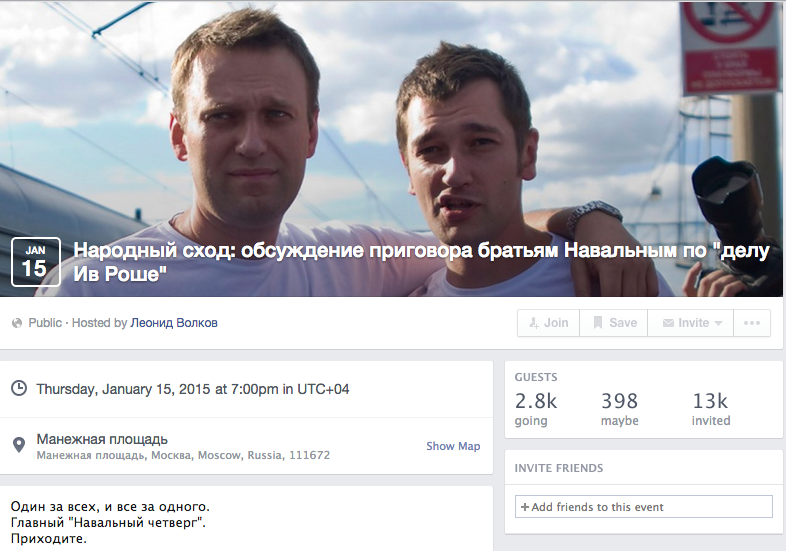
Images edited by Kevin Rothrock.
Alexey Navalny’s name used to occupy Russian news headlines and social media like it was a movement. In late 2011, he became the face of a brief season of street demonstrations that rattled the Kremlin for the first time since the days of the Yeltsin Administration. By 2013, Navalny had morphed from an anti-corruption blogger and protest leader into a bonafide politician, nearly forcing a runoff election in the Moscow mayor’s election.
Since February 2014, however, Navalny’s public presence has dwindled, following a Moscow court’s decision to place him under house arrest in connection with a trial, the Yves Rocher case, that’s only now wrapping up.
On January 15, 2015, a Moscow court is expected to announce the verdict and sentencing for Navalny and his brother, who stand accused of defrauding a French cosmetics company. Prosecutors are asking the judge to lock them up for nearly a decade. According to Navalny, as well as most independent observers, Yves Rocher’s accusations are absurd and the state’s case is politically motivated.
Leonid Volkov, one of the last members of Navalny’s brain trust yet to be arrested or forced into exile, immediately registered an event on Facebook for a mass protest against the verdict. Almost 3,000 people have already promised to attend the rally at Manezh Square, just outside the Kremlin gates, on the evening of January 15. The RSVPs are pouring in, though the Facebook event is just hours old. Expected attendance is still rising rapidly, and another 13,000 people are sitting on “invitations” to join the demonstration.

Leonid Volkov's invitation to the January 15, 2015, protest against Navalny's verdict.
On Facebook, some people question Volkov’s decision to hold the rally after, not before, Navalny’s verdict is announced. For example, Julia Sailer, a Russian-speaking woman living in Germany, warned that waiting until January 15 sends the wrong signal:
Надо 14-го собираться. Собрание после приговора означает: мы ждём милости от Путина, если её не будет – выйдем на улицу. Собрание 14-го означает: мы навязываем Путину нашу повестку дня.
We need to rally on the 14th. A demonstration after verdict [on January 15] means we’re waiting for mercy from Putin, and threatening to go into the streets, if we don’t get it. A demonstration on the 14th means we are the ones setting the agenda—not Putin.
Whether it takes place on January 14 or 15, the demonstration promises a conflict with Moscow police, as Volkov isn’t planning to ask the city’s permission. Indeed, he promises not to seek a permit, writing on Facebook, “The time for sanctioned rallies is long passed.”
If police want, they might actually use the Facebook event for the January 15 protest to target Volkov or even Facebook, in light of the fact that it is illegal in Russia to call people to an unsanctioned rally. In fact, Russia’s Attorney General has already banned 589 web pages for this and other acts of so-called Internet extremism.








9 comments